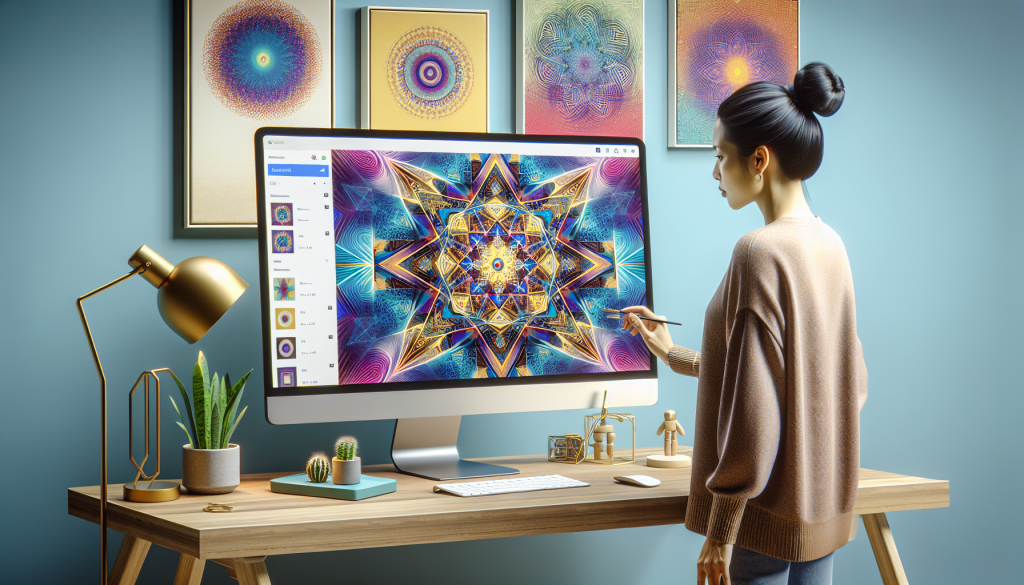
As Artificial Intelligence (AI) technology continues to advance, the realm of creativity has welcomed a new era where AI-generated art is not just possible, but prolific. Enthusiasts, artists, and entrepreneurs alike are now exploring the possibilities of selling AI-generated artwork, but doing so requires careful navigation of the legal landscape that governs copyright, licensing, and intellectual property rights. This article addresses key considerations and best practices for individuals aiming to commercially leverage AI-generated art.
The first question one might ask is: “Can you sell AI-generated art?” The short answer is yes, but with important caveats. The legal status of AI-generated art is an evolving field, owing to the intersecting complexities of copyright law and AI’s role as a creator. Given that copyright law historically protects human authors, the emergence of AI as the “creator” of an artwork presents unique challenges.
To embark on selling AI-generated art legally, one must first understand the source of the AI itself. Different AI art generation platforms may have varying terms of service and licensing agreements. It is imperative to read and understand these agreements before using the AI’s output commercially. Some platforms may grant you a license to use, modify, and sell the generated artworks, while others may impose more restrictive terms.
In the case where you possess a valid license to use AI-generated artworks, it’s crucial to consider whether any of the input data or prompts you provided to generate the art could infringe on existing copyrights. For instance, if you directed the AI to create artwork that imitates the style of a famous painter, or used a copyrighted image to inspire the output, you could be infringing upon someone else’s copyright.
Another dimension of this legal terrain is the use of AI-generated art on merchandise. Just as when selling art in digital or printed form, you must ensure that your licenses cover the specific use case of selling products with the AI-generated art on them. This often requires an additional commercial license that goes beyond the basic right to use and display the art.
Concerns about the ethical implications of AI-generated art have also been raised, especially when it comes to transparency. Disclosing that an artwork is AI-generated is not just good practice ethically, but may also become a legal requirement, as stakeholders are increasingly calling for clarity in this area. Clear communication can also help in establishing a brand that’s known for integrity and can enhance customer trust.
The monetization models for AI-generated art can also dictate the kind of legal considerations one must take into account. For instance, some choose to monetize through platforms like Amazon KDP by using AI artwork to create book covers and other printed merchandise. Others may opt to use an AI art marketplace or services like Sellfy to distribute and sell their creations. Each channel may come with its own rules and restrictions regarding AI-created content.
Intellectual property rights are at the core of these legal considerations. When you generate art using an AI, who holds the copyright to the creation remains an ambiguous issue. There’s a debate whether AI can be considered an author at all, as U.S. copyright law, for example, does not currently recognize non-human authors. This means that, in most instances, the legal protection applies to the person who ‘commissioned’ the work via the AI, assuming no other existing copyrights are violated.
Looking towards the future, legal precedents will continue to evolve, potentially creating a clearer pathway for artists and sellers working with AI-generated art. Legal scholars and legislators are actively considering new laws or amendments to existing laws to accommodate the unique circumstances presented by AI creations. Staying informed about legal developments in this space is crucial for anyone looking to sell AI-generated art commercially.
It’s also recommended to consult with a legal expert who specializes in copyright and technology law to obtain personalized advice for your situation. As AI technology continues to push the boundaries of what’s possible in art and commerce, the legal landscape inevitably adapresses alongside it. However, by taking a proactive and informed approach to your AI art endeavors, you can find a balance between innovation and compliance, ensuring that your business thrives within the legal parameters set forth.